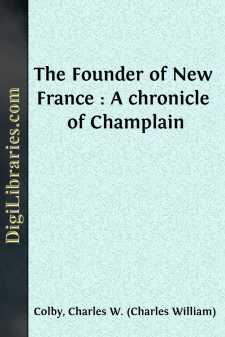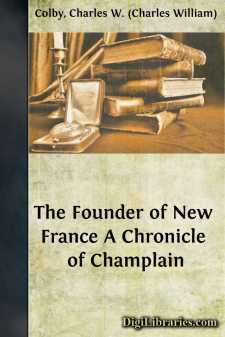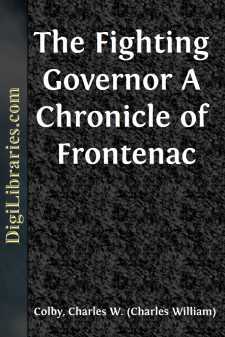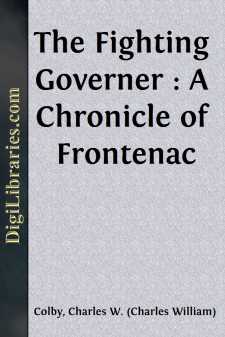Categories
- Antiques & Collectibles 13
- Architecture 36
- Art 48
- Bibles 22
- Biography & Autobiography 813
- Body, Mind & Spirit 142
- Business & Economics 28
- Children's Books 17
- Children's Fiction 14
- Computers 4
- Cooking 94
- Crafts & Hobbies 4
- Drama 346
- Education 46
- Family & Relationships 57
- Fiction 11829
- Games 19
- Gardening 17
- Health & Fitness 34
- History 1377
- House & Home 1
- Humor 147
- Juvenile Fiction 1873
- Juvenile Nonfiction 202
- Language Arts & Disciplines 88
- Law 16
- Literary Collections 686
- Literary Criticism 179
- Mathematics 13
- Medical 41
- Music 40
- Nature 179
- Non-Classifiable 1768
- Performing Arts 7
- Periodicals 1453
- Philosophy 64
- Photography 2
- Poetry 896
- Political Science 203
- Psychology 42
- Reference 154
- Religion 513
- Science 126
- Self-Help 84
- Social Science 81
- Sports & Recreation 34
- Study Aids 3
- Technology & Engineering 59
- Transportation 23
- Travel 463
- True Crime 29
Charles W. (Charles William) Colby
Charles William Colby was a Canadian historian, educator, and author, known for his contributions to Canadian history and literature. He wrote several works, including "The Founder of New France: A Chronicle of Champlain" and "Canadian Types of the Old Régime." Colby was a professor at McGill University, where he taught history and also served as the Dean of Arts. His work primarily focused on the exploration and colonization of Canada, particularly during the early French colonial period.
Author's Books:
Sort by:
CHAPTER I. CHAMPLAIN'S EARLY YEARS Were there a 'Who's Who in History' its chronicle of Champlain's life and deeds would run as follows: Champlain, Samuel de. Explorer, geographer, and colonizer. Born in 1567 at Brouage, a village on the Bay of Biscay. Belonged by parentage to the lesser gentry of Saintonge. In boyhood became imbued with a love of the sea, but also served as a...
more...
CHAPTER I CHAMPLAIN'S EARLY YEARS Were there a Who's Who in History its chronicle of Champlain's life and deeds would run as follows: Champlain, Samuel de. Explorer, geographer, and colonizer. Born in 1567 at Brouage, a village on the Bay of Biscay. Belonged by parentage to the lesser gentry of Saintonge. In boyhood became imbued with a love of the sea, but also served as a soldier in...
more...
CHAPTER I CANADA IN 1672 The Canada to which Frontenac came in 1672 was no longer the infant colony it had been when Richelieu founded the Company of One Hundred Associates. Through the efforts of Louis XIV and Colbert it had assumed the form of an organized province.[] Though its inhabitants numbered less than seven thousand, the institutions under which they lived could not have been more elaborate...
more...
CHAPTER I CANADA IN 1672 The Canada to which Frontenac came in 1672 was no longer the infant colony it had been when Richelieu founded the Company of One Hundred Associates. Through the efforts of Louis XIV and Colbert it had assumed the form of an organized province. [Footnote: See The Great Intendant in this Series.] Though its inhabitants numbered less than seven thousand, the institutions under...
more...





